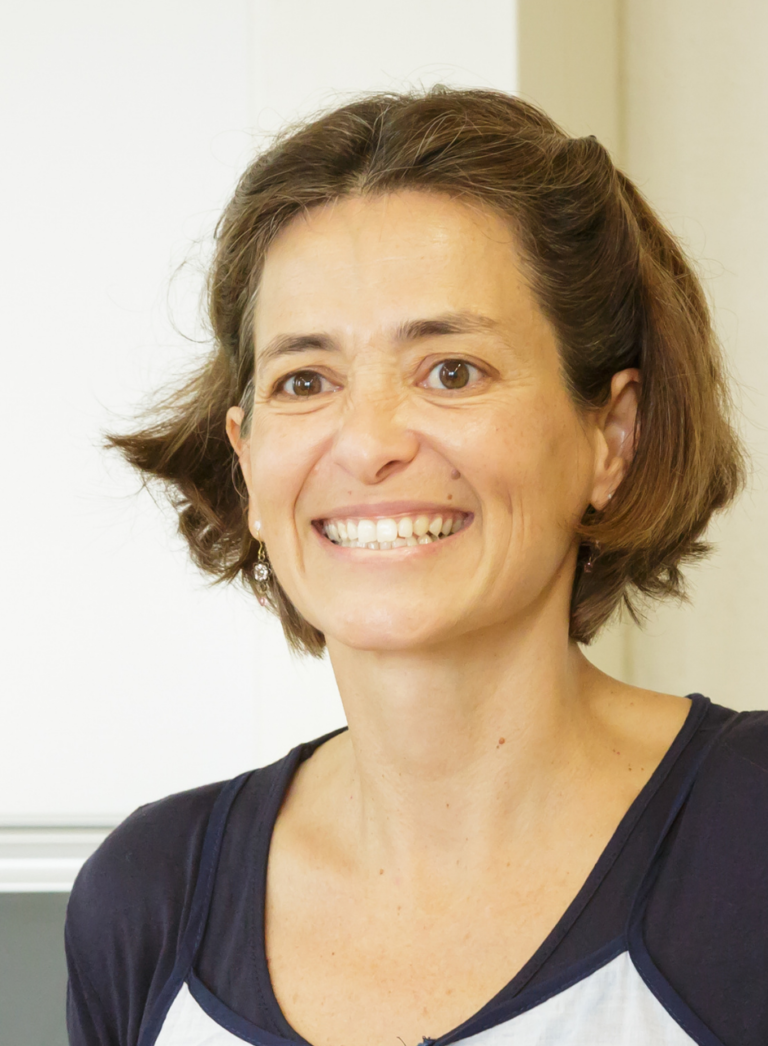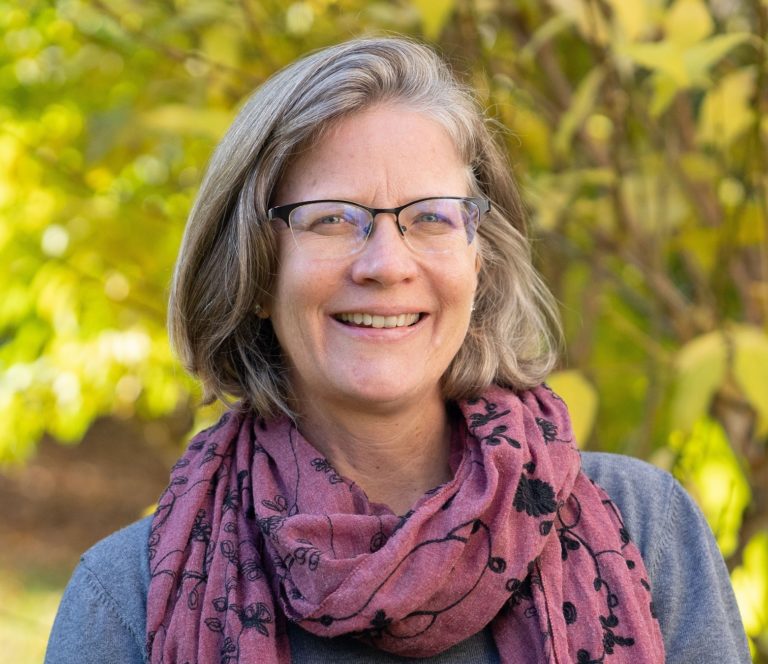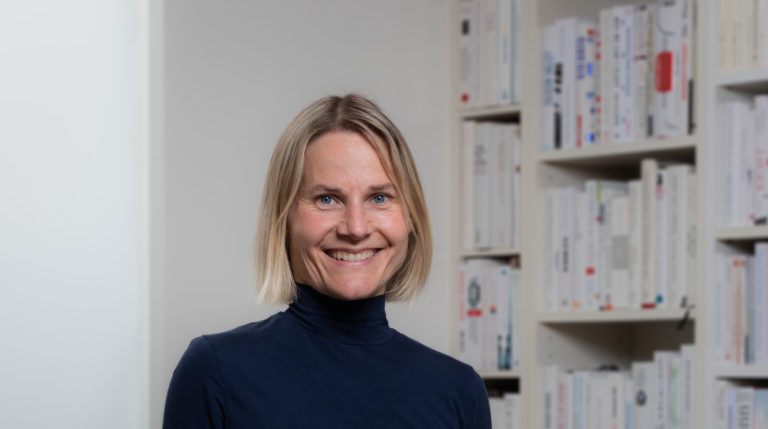In May, we met for a panel discussion about the role of education in bridging the gender gap in STEM – in collaboration with Advance & hosted by SIX. The discussion highlights different perspectives and challenges from companies, universities, and educators around achieving their common goal of bridging the gender gap in STEM.
In this article, we have put together the key takeaways and a summary of the most interesting points made by the experts. The whole panel discussion was also recorded and can be re-watched here.
Key takeaways
⭐ The most important skills for young girls (and boys) are self-confidence, resilience, and curiosity. Empower girls to take ownership of their career choices.
⭐ Young girls need mentors & role models in the tech industry and short-term maybe an extra portion of encouragement to study something against their stereotypes (same for boys).
⭐ Teachers are multipliers and role models that need to be aware that they can shape how technical topics are perceived.
⭐ Peer pressure seems to have an even stronger impact (girls tend to lose interest in tech between the age of 12-15) so the image of tech needs to change.
⭐ Expose children to technology as early as possible and shift their role from being consumers to actors that understand & shape technology.
⭐ Companies need to recognize the value of career changers and rethink job descriptions and requirements.
Introduction of the panelists
Dr. Alain Gut Connect
Chairman of the Education and Skilled Workforce Committee of digitalswitzerland and Director Public Affairs IBM Switzerland.
Education: Business Informatics (PhD), University of Zurich
Sara Kaiser Connect
Program Director of the Luxembourg Tech School (LTS).
Education: Management & Tourism (HF), Academia Engiadina
Dr. Patricia Widmer Connect
Vice Director Open Enrolment and Diversity, University of St. Gallen.
Education: Business Administration (PhD), University of Zurich
Dr. Marina de Queiroz Tavares Connect
Lecturer Signal Processing and Diversity Responsible, ZHAW School of Engineering
Education: Microelectronics / Electrotechnics (PhD), INSA Lyon
Julia Meldere Connect
Head of Public Cloud Competence Center (IaaS/PaaS) at SIX.
Education: Strategic Marketing (MA), University of Greenwich
Dr. Darcy Molnar Connect
Program Coordinator, Institute of Environmental Engineering ETH Zurich
Education: Physics (BA) / Civil Engineering (PhD), Colorado State University
What are the most important skills and interests that are needed to succeed and thrive in a technical career?
Alain: Mathematics is definitely important and we need to have a discussion about how mathematics should be taught in schools. But everything that has to do with communication and social skills is just as important.
The tech industry has a completely wrong image that it’s only programming and that there aren’t any social professions.
Marina: I think the decisive skills are two: self-confidence and a sense of liberty of choice. The problem is not that girls are not good at math – but that it becomes “uncool” to be good at math starting from around 11 years old.
So my advice would be: let your girls play football in a mixed team so they build up the confidence to say that they like math – if they do.
There is a lot of pressure from society and from peers, so children need to know that their choices for a profession or anything else will be accepted and respected.
Sara: What I also see is the importance of exposure. I work with 12-19 years old in Luxembourg and we aim to open up their view of technology and show them what is possible.
We expose them to different technical topics, show them from different perspectives, combine it all with story telling, communication, and creativity. The exposure can awaken their curiosity for tech and lower their fear.
Darcy: To complement this I would also emphasize on math and logical thinking skills, and also problem solving which is important in engineering. A general curiosity about the world and how things work is the core.
It’s really nature plus nurture. I have experienced with my own daughter how important it was to support her and give her confidence in her decision to choose the math and physics profile in gymnasium (high school in Switzerland).
Patricia: I’d like to add resilience as the third decisive skill. Children might feel a backlash from their environment when they choose a path that does not confirm the stereotype. It’s our resposibility as parents and educators to help them become more resilient in such situations, and stand their ground.
My daughter actually decided against math in gymnasium because everybody told her “it’s just for boys”. Even her friend who was the best in class in math, got told by her parents that she shouldn’t do it because it’s for boys.

The decisive skills are self-confidence and a sense of liberty of choice.
Marina: We are all emerged in a world of technology, but we often find ourselves only in the role of consumers. All children – boys and girls alike – should be able to get a sense of what is behind the technology they are using and become actors rather than consumers. I believe this will happen automatically if we make it possible, because children are naturally curious.
What’s the current state of STEM education in terms of the gender gap?
Alain: I have only one number: the percentage of women studying informatics at universities or through vocational education in Switzerland is 12%. And what really worries me is that this number has not changed since 20 years.
Darcy: At ETH on average we have 32% of female students, but if you look at the department of mechanical and process engineering it’s about 13%. The pure engineering and computer science programs are seeing around 12-15% of female students.
Maths and physics are typically around 20% which is interesting because a study has shown that around 23% are girls in the math & physics profile in gymansium. These numbers have increased by around 3-5% since 2006.
What is encouraging for me is that the health science and technology program at ETH has 63% women. Also in environmental sciences and environmental engineering it is over 50%.
So what we’re seeing is that in the pure engineering and science programs the numbers are lower, but as soon as you combine tech with applied fields such as medicine and environmental science, the numbers are much closer to 50%.
We can also look at these numbers comparing Swiss students vs. international students, as well as bachelor vs. master students. The numbers for female Swiss students tend to be lower at the masters level compared to international female students.
Marina: At the school of engineering at ZHAW we are also low. But there is a slight increase of around 0.5% every year. We are now at around 10-11% of female students.
We are a university of applied science, so the students are mostly coming from apprenticeships – not from gymnasium. I looked at the numbers of which apprenticeships where choosen by girls last year: 3.3% of the girls choose something related to engineering, 3.5% choose something related to architecture and construction, and only 0.8% of them choose informatics. And that is the number that really scares me.
Sara: We have nearly 40% girls at the Luxembourg Tech School. We have seen two patterns over the years: the numbers are higher in younger age groups, and an international environment usually leads to more girls being interested in tech.
Luxembourgh has around 28% of women in STEM, and that is one of the lowest numbers all over Europe.
Patricia: Even though we also have a school of medicine and a school of computer science at the University of St. Gallen, all programs are related to the business. However, the numbers are still scary, because they are the same as we just heard. Around a third of students at HSG are female over all programs, and we are loosing them along the way.
I work in executive education, and there the numbers are even lower. In MBA programs we often have only 10% of women – as soon as the topic is more technical, numbers drop even more. We are really seeing that women tend to ask less or receive fewer opportunities for further education.

The pure engineering and computer science programs at ETH Zurich are seeing around 12-15% of female students.
What are initiatives that really make a difference and why?
Darcy: Through the Kangaroo initiative we have learned that girls are doing just as well in math as boys in primary school. However, in high school they aren’t doing as well – or aren’t participating as much anymore.
Therefore, we have started together with the ETH math departement the Kangaroo goes Science initiative where we bring the top 100 girls from the Kangaroo math competition to ETH to celebrate their sucess. We show them the university, the labs, and show them their perspectives in STEM.
But more importantly, we also invite their parents. And the first year we did this the reactions of the parents were really interesting, because many of them did not realize that their daughter could go to ETH one day. The role of parents and engaging them in the conversation is key.
Through mint & pepper the mechnical engineering department offers workshops and modules for schools to make math, computer science, tech and natural sciences more tangible for children. There is a lot going on but we often rely on teachers from primary and secondary schools to bring the content into their class rooms.
There are a lot of offers out there, but the parents or the teachers might not know about it. So the challenge is really connecting them with these offers.
Sara: This is exactly the mission we have at the Luxembourg Tech School. We try to be the bridge between schools and the tech world. And also bringing on the parents, siblings and friends – literally their whole environment. This bridge is really essential to make tech more approachable.
We see the schools struggeling to bring these programs to the children because they have so many requirements these days with their curriculums. It needs organizations that match the offers with the teachers and parents.

At the Luxembourg Tech School, we try to be the bridge between schools and the tech world.
Marina: I am convinced that our natural multipliers on this mission are the school teachers. We also have a big calendar of offers at the school of engineering at ZHAW, but we are not working with the children on a daily basis like the teachers do.
As universities we should aim to work much closer together with teachers. Since 2019 we are doing a pilot in Winterthur together with the education department and we are learning a lot.
We now have boxes that the teachers can rent for free and bring into their class rooms. We have digital handouts that are reviewed by teachers and are matched with their yearly goals.
Often we find you need someone in the school who is making time for it. We have also seen this in Brazil in a school where we taught the teachers how to run a robotics workshop for the kids – the key there was the school director who supported the initiative.
Alain: If I was an educator, I would completely change the curriculum. Girls tend to have less interest in the pure technical details, but they want to know how it can be used.
To make it more attractive for girls we need to rename the programs, we need to make it more interdisciplinary, and then we will see change happening.
How can companies help in bridging the gender gap regarding education?
Julia: For this I would like to come back to the topic of confidence. It is a well-known fact that women tend to only apply for jobs where they fulfill all the requirements. So as companies we should think about how to rephrase job descriptions to make it more appealing for women.
We should provide coaching for recruiting and hiring managers to improve job descriptions, but also reach out to women and girls pro-actively about opportunities and encourage them to apply.
It’s also about nurturing and creating a different mindset for boys and men to think about diversity as something that benefits all. How can we get men interested in the topic of diversity beyond pure awareness? I believe this could be another one of these multipliers which was mentioned before.
Alain: Companies should look for career changers because there is a huge potential there. Within the ICT professions, there are over 60% of career changers, and many of them are women. And companies can unlock this potential today.

Within the ICT professions, there are over 60% of career changers, and many of them are women.
Patricia: Companies are still focusing a lot on the number of years of relevant experience when hiring. But career changers are bringing transferable skills rather then years of experience – and there is potential in this as well.
Years of experience can even be a hurdle because you cannot bring a new perspective. Companies are still looking for more of the same and like that there is no disruption and no innovation.
To add to the point of confidence when applying for jobs, I also want to point out that this already starts at a very young age. Young girls are often looking up to their teachers and register how they perceive math and science.
A lot of the female teachers in primary school have a risk of creating and passing on their unconscious self-assement of STEM and math – we also call this math-anxiety – to the young girls.
This of course has to do with role models and does not only apply in primary school, but also in executive education. What you see is what you believe. If we only see men in STEM in leadership, how shall we convince young girls that there is a place for them in tech?
We could cut the gender gap in half if we made sure there are as many female innovators in the tech space available to girls in school as boys already have male role models.
I also feel mentoring programs can have a big impact if we look closely who is mentoring whom. Men can absolutely mentor women and vice-versa, but it’s important to define for what.
Alain: One of my daughters is a career changer. She started working at Meteo Schweiz and got exposed to a lot of tech and realized that she actually enjoyed working there. So only because someone studied tourism, like my daughter did originally, doesn’t mean they cannot end up in tech eventually.
Sara: I am also like that. I think it’s really important to show these stories. Young girls don’t have to necessarily decide at the age of 15 what they want to do for the rest of their life.
I changed my career twice already completely. And it’s not always easy to not progress in a straight line, but there are a lot of possibilities for change.

If we only see men in STEM in leadership, how shall we convince young girls that there is a place for them in tech?
What can individuals do to support young women in finding their place in tech?
Patricia: Support them, be patient with them, give them guidance when needed. Also portray more women as role models, which is why events like this discussion today are so wonderful, but we need more of this.
Alain: If we want to find the root of the problem, we need to change our society right here in Switzerland. I would remove the gender segregation, so that there isn’t this mindset of professions for boys or for girls.
Darcy: If you see a child that is interested in math and physics, encourage them. Tell them that they can do it, mentor them and provide them with opportunities to try.
Sara: Exposure is extremely important – from a young age onwards. Make it practical and applied and don’t focus on the theory only. Create a safe space to try and test, and a space where they can make mistakes.
Marina: Take your kids to technorama or a science exposition. Buy a robot for a girl. Give them tech projects to work on and provide them with a sense of ownership.
Julia: As invidiuals in companies we need to highlight the diversity of jobs in the tech industry. There are not only jobs in tech that require programming – and we need to change this image.

As invidiuals in companies we need to highlight the diversity of jobs in the tech industry.
We’d like to thank our knowledgable panelists for this engaging and interesting discussion. We hope this can spark further conversations on how we can empower young girls and women to pursue technical careers.
Also big shout-out to SIX for hosting this event and for Advance for the co-organization. As always, it’s a pleasure to join forces.
Author: Lisa Stähli






